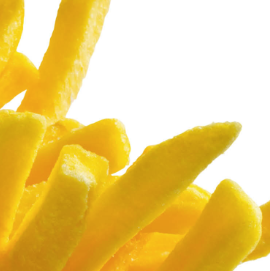As of June 8, the novel coronavirus pandemic has infected almost 7,000,000 people with the Covid-19 respiratory disease that has resulted in nearly 400,000 deaths. The ongoing health crisis that has spread from China to all corners of the globe has had a profound impact on the potato sector, as demand in the foodservice sector has dropped significantly due to government-imposed closure of restaurants and cafes. This has had a huge negative impact on production and processing.
In Belgium, which ranks as the world’s largest exporter of frozen french fries, a national campaign dubbed SOS Patat has been launched to urge consumers to buy and consume extra portions of frozen potato products.

According to the Belgapom trade association, the Too Good to Go anti food waste initiative should help free space in the warehouses of further processors and enable them to utilize extra tons of old crop tubers while waiting for global foodservice and hotel sectors to reopen for business and gradually scale demand.
As of late May it was estimated that the surplus of old crop spuds amounted to 750,000 tons. The industry is working intensively to pare down the potato mountain in a three-step approach: food (a combination of the SOS Patat campaign, distribution through food banks and exports); animal feed; and bio methanation energy production.
Up until now, Belgian potato farmers have not received any financial aid to deal with this problematic situation.
Too Good To Go consumption stimulation campaign was kicked off in collaboration with Belgapom, Belpotato.be, Comeos and a number of retailers, Unizo, the Belgian potato processing industry and the promotion boards VLAM and APAQ-w.






